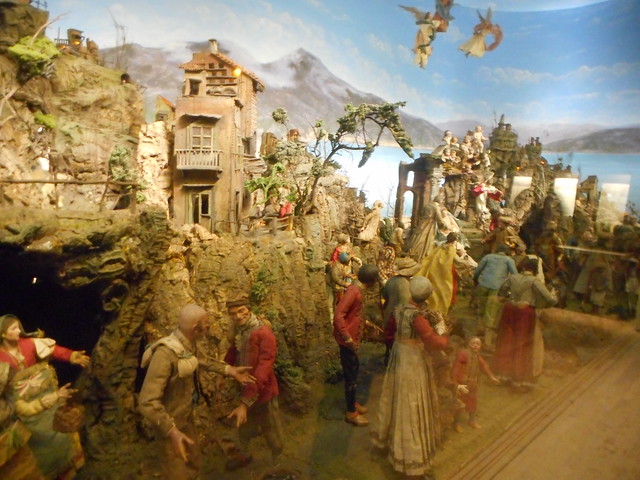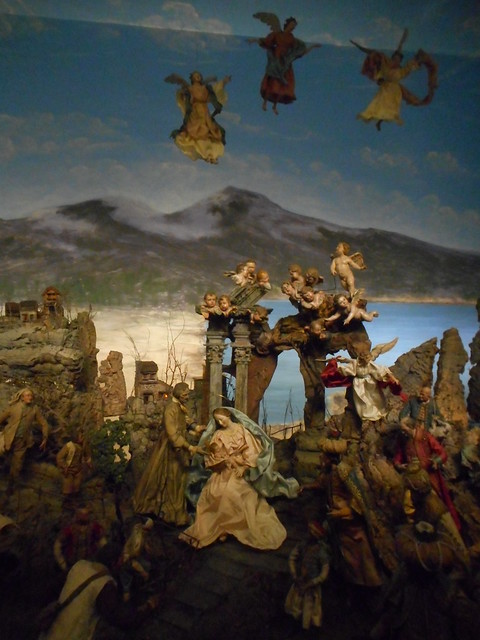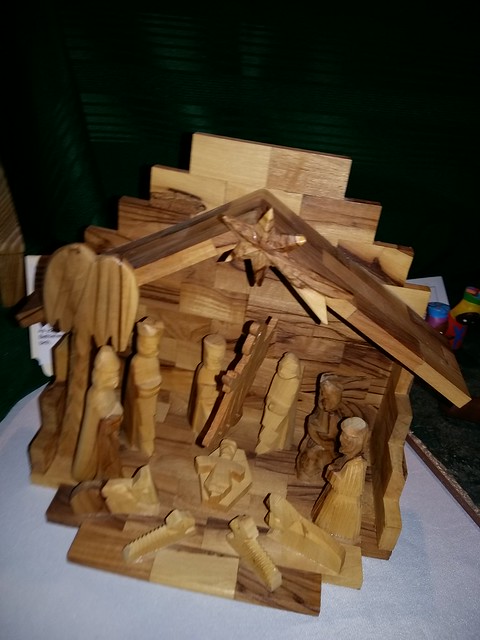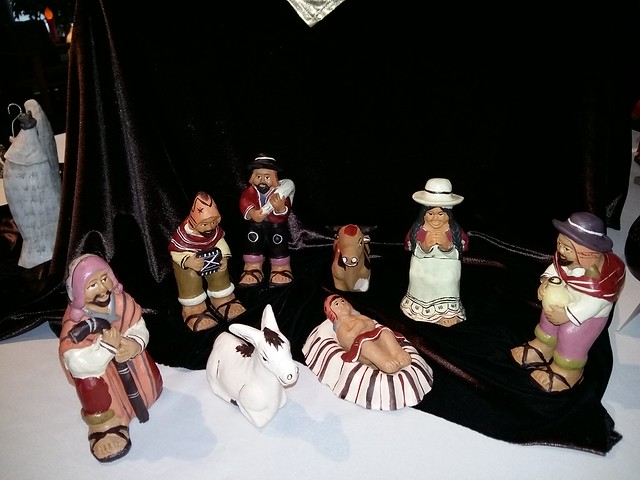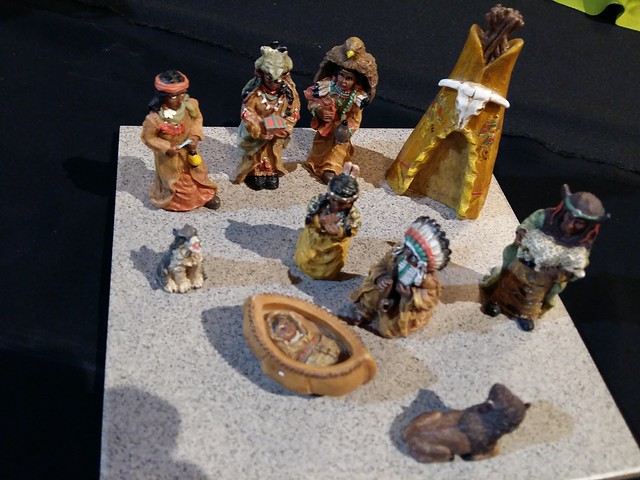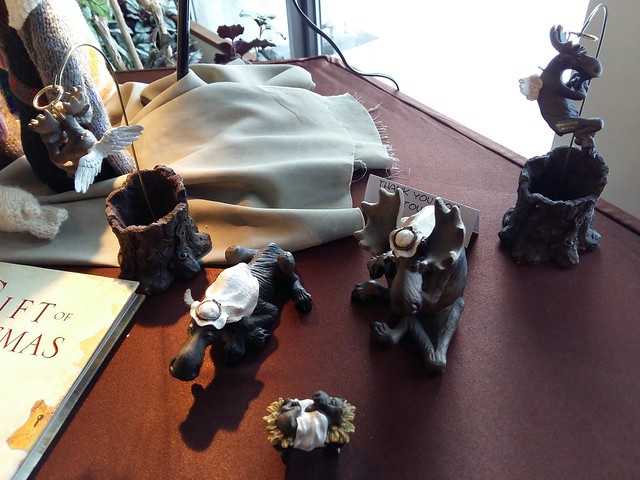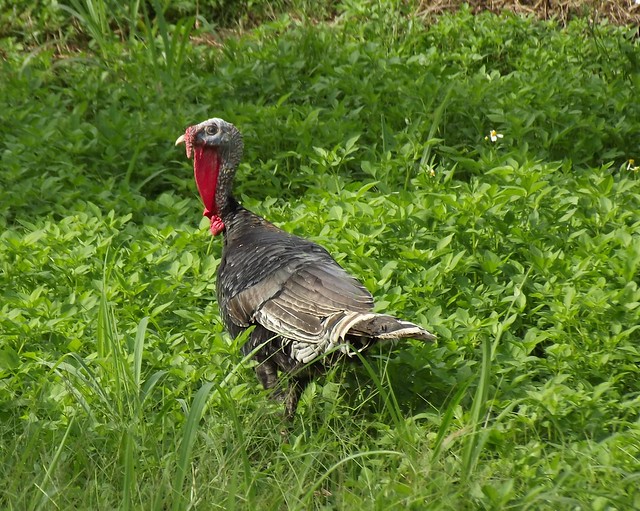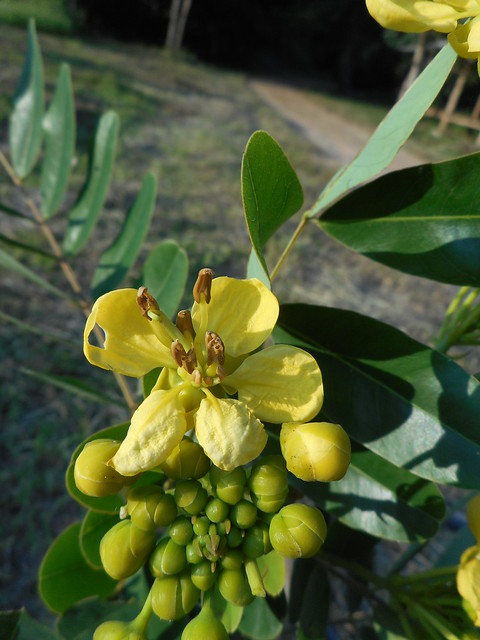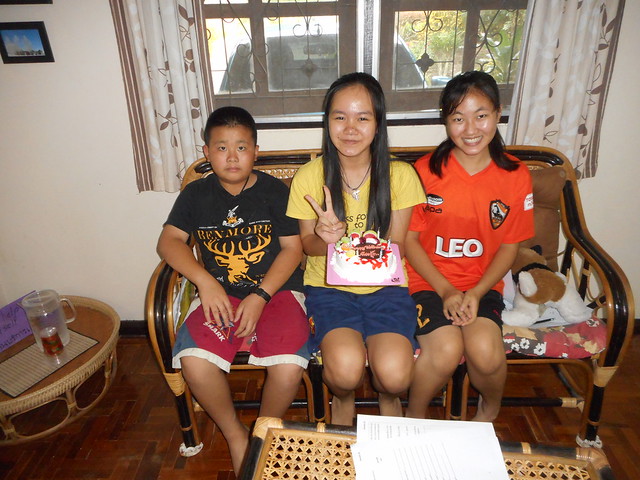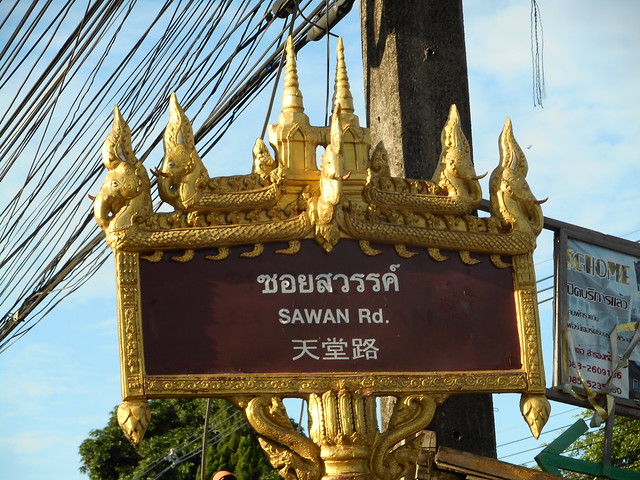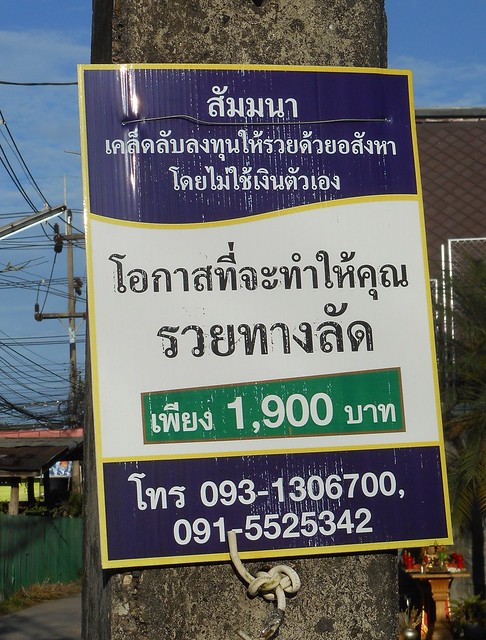January
Pleasure Cruise

In January we brought together several leaders from Canada and Laos to share stories with each other and encourage one another. My main job was logistics. I was instructed to set up a fun outing on one day, so we arranged a boat ride for the group from the Changing Life Center to a restaurant in Chiang Khong. While many of the folks from Laos have probably been on the river many times in their lives--even if just to cross to Thailand--this was different. There were 45 of us on the boat and we passed the two hour trip upstream singing and telling stories. It was great to see the folks from Laos enjoying this once in a lifetime trip. The return trip only took half the time, as we were going downstream.
February
Ngao River
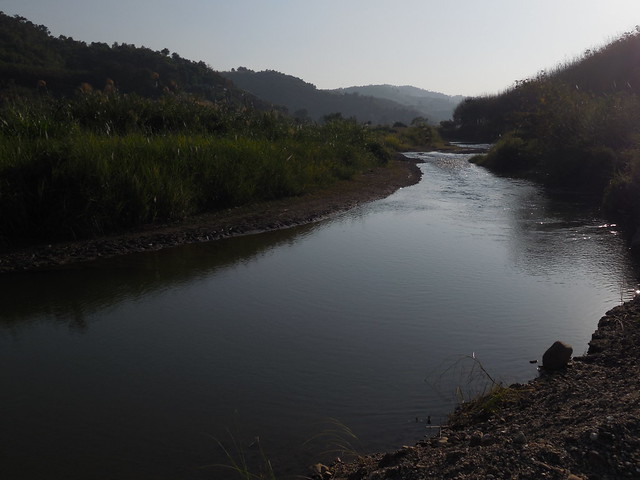
The district we live in consists of the watershed for the Ngao River. The river can be quite tame in the dry season but usually floods at least once in the rainy season. In my bike riding I've explored many parts of this watershed. This past year I tried a field road that I had not been on before. The road eventually fords the Ngao River. This is a quiet spot and sometimes I like to ride there just to detach myself from life's cares and concerns and enjoy God's presence.
March
Women's Conference
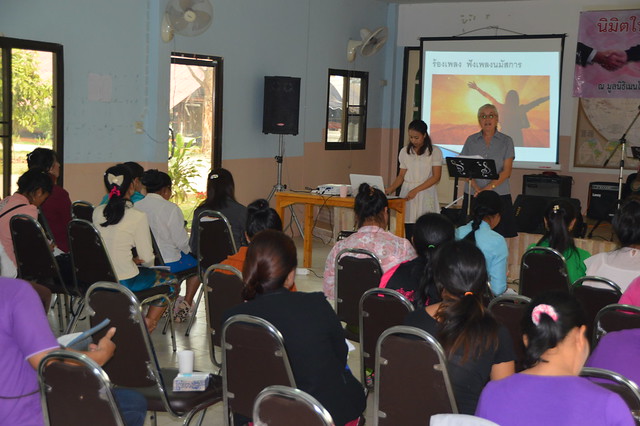
This past year, we held the first Khmu Women's Conference at the Changing Life Center that featured women speakers. We had hoped to also have it planned by women, but that was not to be. Ingrid was one of the presenters, and it was her first time sharing at a large group in Thailand. So I captured this glimpse of her speaking. One of our Khmu leaders, Pat, was translating for her.
March-Vietnam
A taste of Mexico
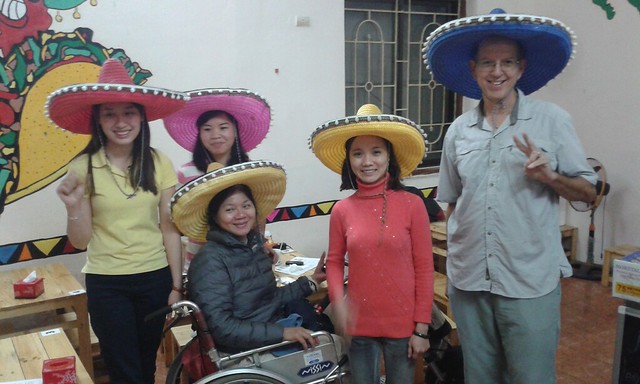
In March, I had to opportunity to travel to Hanoi to observe some training. While I was there, I decided to visit a Mexican Restaurant that was near our hotel. The hotel was not in a tourist area, so I was surprised to find a Mexican restaurant there. The proprieter (In the red sweater) was happy to have someone to practice English with. When I asked her why she opened a Mexican restaurant, she said that she once worked at a Mexican restaurant in the tourist area, but it was quite expensive. She wanted to make Mexican food available to the common people.
I also chatted a bit with her husband, whose English was fairly good. While I was explaining the kind of work I used to do, he responded using some technical words in English that not many Americans would even know. That's how I found out that he works for the Environmental Ministry. Before I left, they wanted a picture with me. So we grabbed the sombreros that were hanging from the walls as decor and put them on for this pose. The food may not have been as authentic as what we find in California, but it was quite tasty. And the atmosphere was great.
For more pictures from Hanoi, view here.
April
Queen Sirikit Botanic Garden
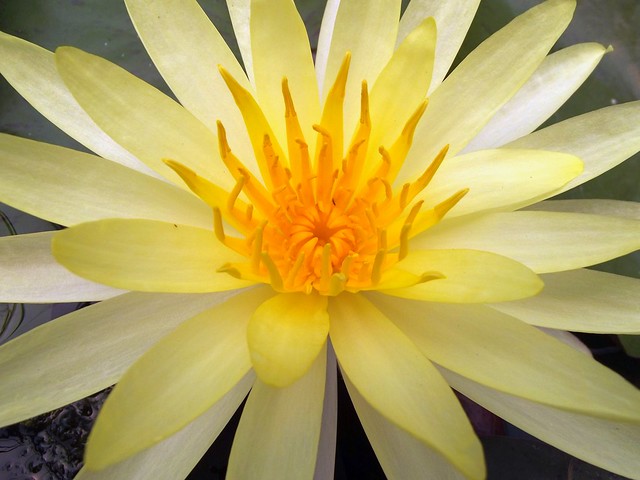
In April, we ended up making a trip to Chiang Mai. While we were there we took a few hours to visit the Queen Sirikit Botanic Garden. The place was quite awesome, and I easily could have spent several days there. Or maybe a few months. It was hard to pick a photo from all the flowers I photographed there, but I especially liked this water lily, which seemed to glow like the sun.
May
Doi Pha Tang Park
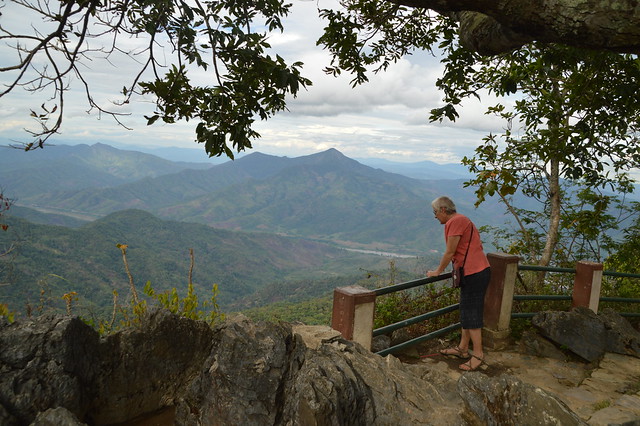
About 30 kilometers from us (20 miles) is a mountain park called Doi Pha Tang. While it is quite close, It takes over an hour to get there because of the steep, windy, narrow roads. Every once in a while we like to go there just to enjoy the cool mountain air. When you make the short walk from the parking area to the crest of the mountain, you are standing on the border of Laos. Looking down off the cliff, one can see the Mekong River making its way towards Louang Prabang, the ancient capital of Laos, and eventually out the South China Sea in Vietnam.
June
Butterfly
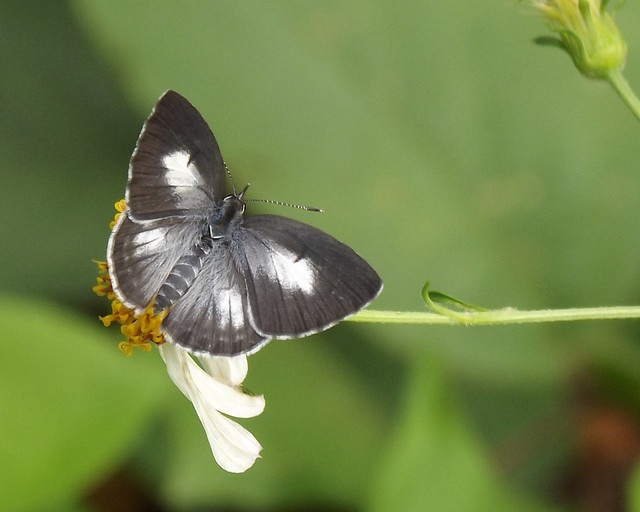
Not far from where we live is the ancient city of Wiang Kaen, which is now a forest. There is a dirt road around this forest, where sometimes we go for walks. One morning, the butterflies were particularly active. While I never discovered the name for this particular butterfly, it seemed particularly pretty in its rather simple white, gray and black colors.
July
Voodo Lily
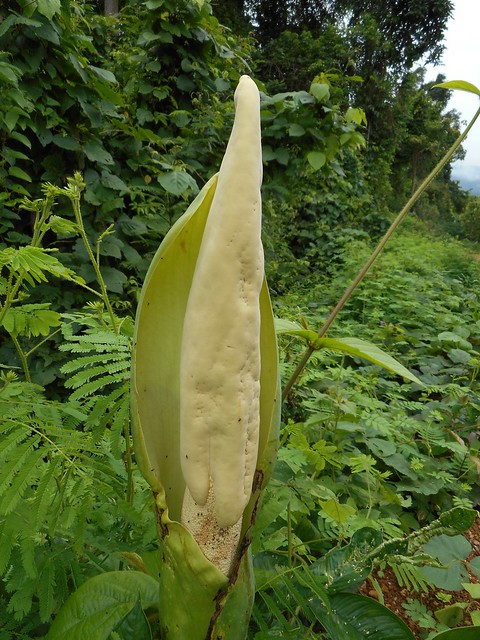
The voodoo lily plant is fairly common around our area, but I had never seen it flower. Finally, while I was walking around the forest that was once the city of Wiang Kaen, I saw this unusual white flower spike. Upon approaching it, I noticed a strong and not particularly pleasing smell. Apparently, the plant uses these strong odors to attract the flies that pollinate it. What an amazing creation of God. For more about this plant, view here.
July-Laos
Tat Xai Waterfall
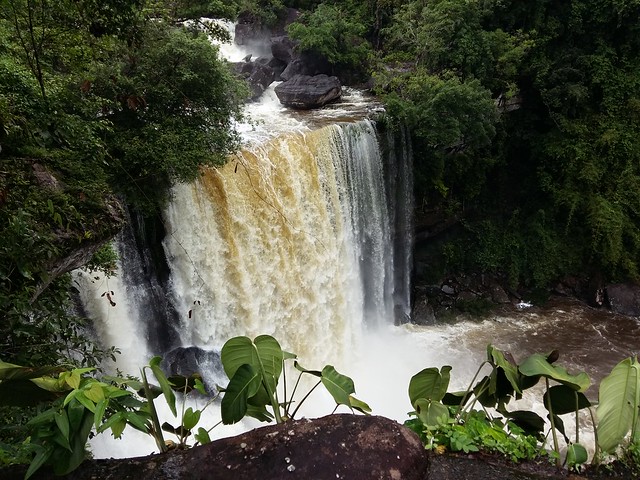
Towards the end of June, our visas were expiring. It was necessary for us to leave Thailand to apply for a new visa. We decided that the least expensive option was to travel to Vientiane-the capital of Laos. In order to time the expiry of our visas with our MINA plans, we stayed several days. One day, we took an outing to Phu Khao Khouay National Park. We drove about an hour then we boarded a small boat which took us up river. Since it was rainy season, the rivers were running high and I noticed we were boating over the tops of some small trees. (Most people make this trip in the dry season when they do less of the travel on water and more on foot.)
When we got to the base of some nasty rapids, we disembarked and a guide helped us find our way through an overgrown trail up to a waterfall. It was quite pretty along the way, and at the top, the tour included a gourmet picnic lunch. Fortunately, there was a picnic shelter, because at that point the rain had started to fall. There was an impressive amount of water going over the falls and the water was brown with mud. But it was a beautiful place to hang out and listen to the water crashing on the rocks below. For more photos from this trip to Laos, view here.
August
Rice Paddy Reflections
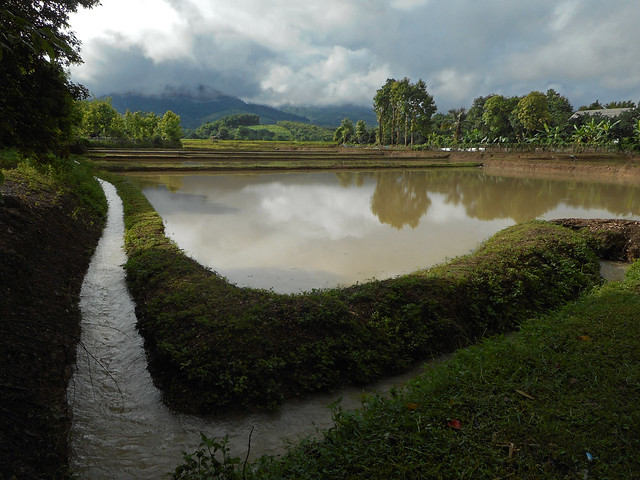
Rice is the main crop grown in Thailand. We grow both paddy rice and upland rice. Where there is sufficient irrigation water, they may grow three crops a year of paddy rice. Often, the farmers depend on rainfall even for the paddies. Down the street from us is a creek bottom that they use to grow rice using primarily rain water, but also supplemented with water from the creek. After one particularly heavy rainfall, the paddies were quite full and showing reflections of the hills and clouds. Shortly after this, the fall rice crop was planted.
September
Skull Mountain
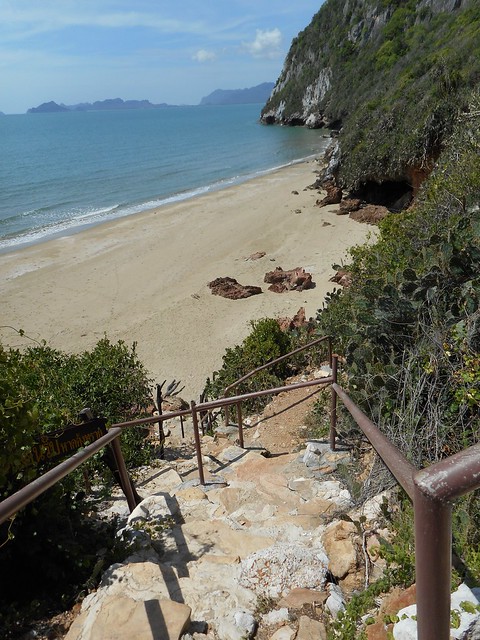
In September we were finally able to get away for a short break. We went to one of our favorite places in Thailand, Sam Roi Yod (Three Hundred Peaks). We like it because it has a mixture of ocean and mountains and parks, but it is not overdeveloped.
On one day we rented a scooter and drove up to Khao Kralok, which interprets "skull mountain". It receives its name because the cave openings in the limestone hill give it the appearance of a skull. There is a really nice beach there, that is quite popular. But if you are brave enough to walk the rugged trail, you can walk over to the back side of the mountain where there is a nice, secluded beach. We had it all to ourselves.
October
October Surprise
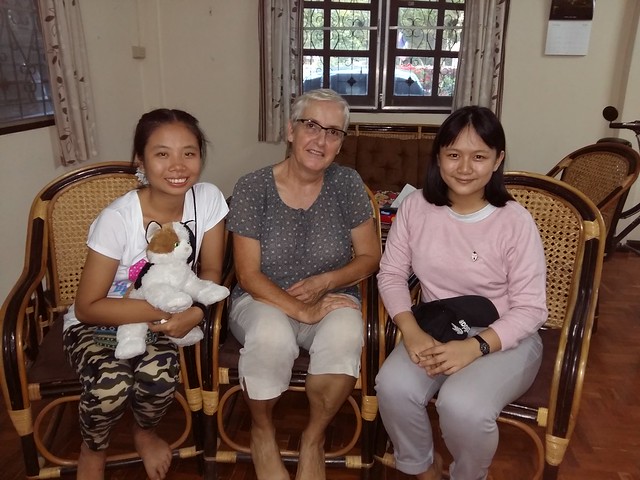
On a Sunday afternoon towards the end of October, we were getting our house ready in order to go on home assignment. But before that we were leaving the following day for a week-long conference in Chiang Mai. I was doing something in the back yard when I heard a motorcycle drive up. To our surprise, it was Ching and June--two Hmong girls who had studied English with us and were now in their first year of university, Ching in Bangkok and June in Chiang Mai.
We were not at all expecting them as we thought they were away at school. But they had come back for the weekend to attend a wedding and they didn't want to miss seeing us before we headed back to North America.
This visit was one of the highlights of our year--like having your kids travel a long ways to make a surprise visit. Sometimes we wonder if our work has an impact on others. The visit from these two young women showed that their relationship with us was more important than learning English.
November
Buntzen Lake
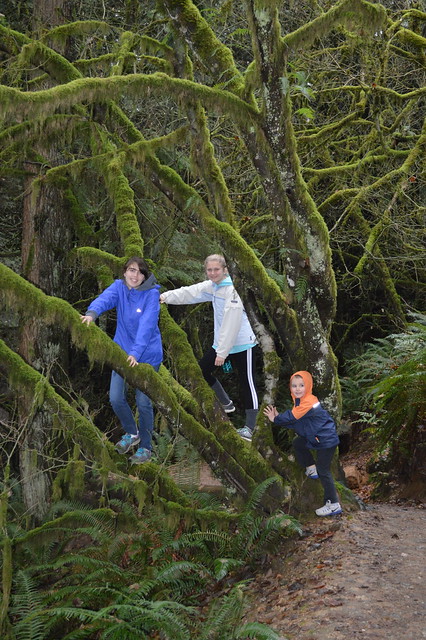
In early November we were in British Columbia. One day, Ingrid's sister and her family took us on an outing to Buntzen Lake. There was a trail running alongside the lake through the evergreen forest. The humidity in this part of the world meant that everything was green with moss. At one point, our nieces and nephew (who love to climb trees) found this small mossy tree beside the trail. In no time, they were up on its branches, and the bright colors of their clothing stood out like beacons in the dark, mossy forest.
December-New England
York Harbor
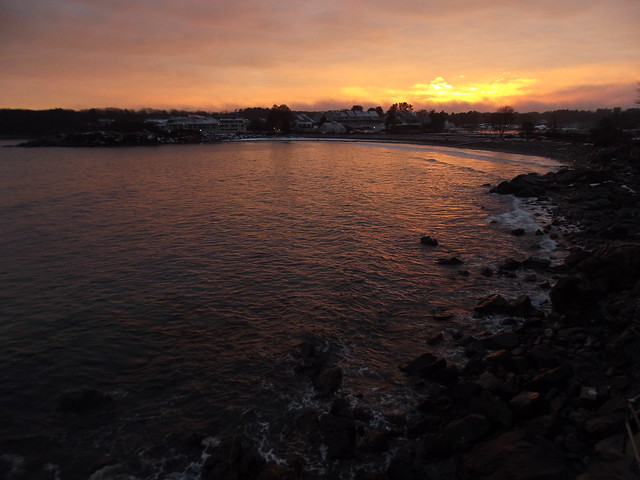
One of the things I like about New England is the rocky coastline that has lots of crannies in which there are sandy beaches. One of such beach is at York Harbor.
We had awaken one morning in Montpelier, Vermont, to several inches of snow on the ground, with more rapidly accumulating. We had planned on traveling almost due east to central Maine, but that would have meant driving in heavy snowfall the whole way, because we would be tracking the storm eastwards. We opted instead to head southeast to southern Maine. It was my first time driving in snow in a many years. Fortunately, the vehicle we had borrowed had all wheel drive with traction control, so we didn't slip and slide too much. We arrived in York Harbor in mid-afternoon, just as the snow was ending. Not much snow had fallen there, so before it got dark we went for a walk along the bluff trail. As we were coming back to the Inn, the sun was going down in a way that made it seem the sky was on fire. What an awesome end to a tiring day of driving.
December-Canada
Christmas Gathering

The latter half of December found us in Canada, staying with Ingrid's parents. On Christmas day, we went to church, and came back to finish getting dinner ready. Soon, family members started to arrive. It was nice to be surrounded by family members as we celebrated the birth of Jesus, even though we were two short as Christian was in the hospital and Karin was with him for the holiday.

